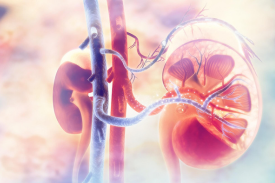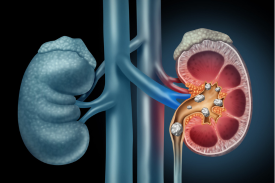Advancements and Innovations in Kidney Transplantation
Kidney transplantation is a life-saving procedure that gives people with end-stage renal disease (ESRD) hope. Significant advances and innovations in the field of kidney transplantation have occurred over the years, improving outcomes and expanding the possibilities for patients in need. In this blog post, we will go over specific advancements and innovations in kidney transplantation, emphasizing their impact on patient care and long-term success.
Laparoscopic Donor Nephrectomy:
In the past, kidney transplantation required a large surgical incision to remove the donor’s kidney. However, the introduction of laparoscopic donor nephrectomy transformed the procedure. The donor’s kidney is removed through small incisions during this minimally invasive procedure, which reduces postoperative pain, hospital stay, and recovery time. The use of laparoscopic donor nephrectomy has increased the number of living donor transplants, giving patients a better chance of finding a suitable donor and improving the quality of life for both donors and recipients.
Living Donor Exchange Programs:
Also known as paired kidney donation or kidney-paired exchange, living donor exchange programs have emerged as remarkable innovations in kidney transplantation. These programs make it possible for incompatible donor-recipient pairs to swap kidneys. For example, if a donor and their intended recipient are incompatible due to blood type or tissue matching, they can be paired with another incompatible pair, allowing for a mutual exchange of kidneys. Living donor exchange programs have increased the pool of potential donors, allowing more patients to receive kidney transplants and decreasing transplant wait times.
Machine Perfusion:
A technique used to preserve and assess the viability of a donor’s kidneys prior to transplantation is machine perfusion. The donor’s kidney is connected to a machine that provides oxygenated blood and nutrients, simulating the conditions inside the human body. Machine perfusion allows for a more accurate assessment of kidney function and increases the likelihood of a successful transplant. It has also increased the preservation time of donor kidneys, allowing for longer-distance transportation and increasing the availability of organs for transplantation.
Minimally Invasive Transplantation:
Technological advancements have resulted in the development of minimally invasive kidney transplantation procedures. Small incisions and robotic technology are used to perform transplant surgery in these procedures, such as robotic-assisted kidney transplantation. Reduced pain, shorter hospital stays, faster recovery, and improved cosmetic outcomes are all advantages of minimally invasive transplantation. While still in development, these techniques have the potential to improve patient experiences and surgical outcomes in kidney transplantation.
Immunosuppression Strategies:
Immunosuppressive medications are critical for preventing organ rejection following kidney transplantation. With the development of new drugs and treatment protocols, significant progress has been made in the field of immunosuppression. Immunosuppressive agents with novel mechanisms of action, such as calcineurin inhibitors, inhibitors, and stimulation blockers, have improved long-term graft survival rates while minimizing side effects. Personalized immunosuppression protocols tailored to the needs of individual patients have also contributed to improved outcomes and lower rejection rates.
Summary:
Kidney transplant advancements and innovations have transformed the field, improving outcomes and expanding treatment options for patients with kidney failure. Laparoscopic donor nephrectomy, living donor exchange programs, machine perfusion, minimally invasive transplantation, and novel immunosuppression strategies have transformed the transplantation process, resulting in better patient outcomes, increased donor availability, and improved quality of life.
The Pune Institute of Neurology, a renowned medical institution in Pune, India, is at the forefront of providing advanced kidney transplantation services. With a team of highly skilled surgeons, dedicated healthcare professionals, and state-of-the-art facilities, they offer comprehensive care to patients in need of kidney transplantation. Through its commitment to advancements and innovations, the Pune Institute of Neurology continues to contribute to the progress of kidney transplantation, providing hope and a new lease on life for individuals with kidney failure.




